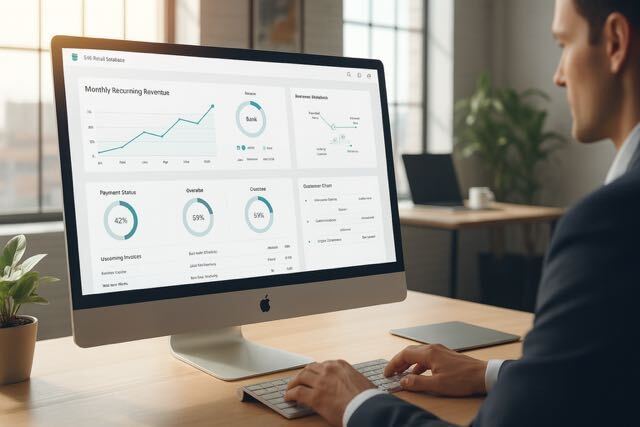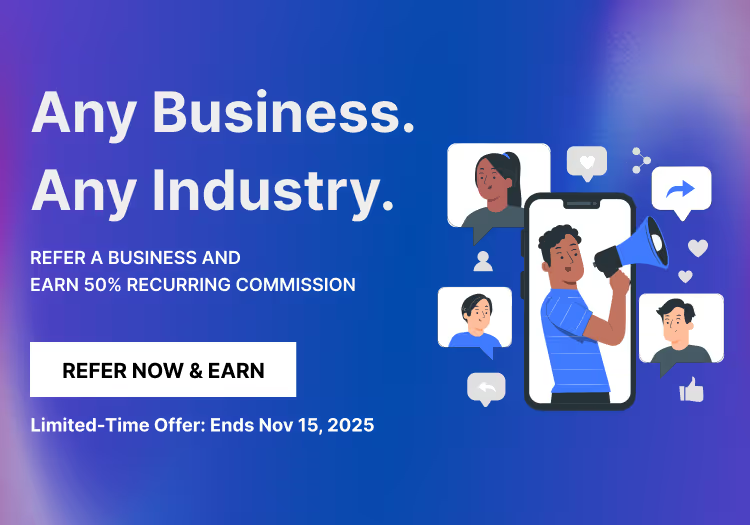How to Answer the 7 Toughest Prospect Questions

Answering tough prospect questions is a breeze with the right insights. Delve into our blog to discover how to confidently address the 7 most challenging questions and win over potential clients.
We’ve all been there—that sales call where everything’s going smoothly, and then ZAP! Like a bolt of lightning, your prospect asks you that one question that—depending on how you answer—could make or break the sale. How do you respond to keep the conversation moving and win the sale?
Especially now, when 97% of the market will come up with some sales objections to avoid closing the deal. More shockingly, salespeople are losing 56% of sales because they can't answer prospects' questions.
Your ability to answer the toughest questions demonstrates your knowledge of the products or services you sell and your personal motivation to handle the sales process. It also reveals your understanding of your customer's business needs and their process knowledge. So, as part of your sales strategy, you must be prepared to take on these challenging questions.
In this post, we highlight some of the toughest questions prospects ask salespeople. Then, we follow each question with tips and a suggested response that provides the information your prospects need and pushes you closer to gaining a sale.
In Search of the Toughest Prospect Questions
In a recent survey of our more than 1,800 LinkedIn followers, we wanted to learn:
- What questions or sales objections they’re facing during the current economy.
- How they handle those objections.
In our findings, we discovered the following results:
- 47% of salespeople face objections related to pricing.
- 33% of salespeople face objections related to competitor comparisons.
- 20% of salespeople face objections related to product relevance.

Based on these findings, we then curated a list of seven of the toughest questions prospects asks when objecting to a sales proposal. Going a step further, we then came up with strategies to help you prepare for handling these questions.
7 of the Toughest Prospect Questions and How to Respond
Use this guide to understand the common objections prospects have and how to respond to them. Replace the variable text in the square brackets with the information that best reflects what you can offer to a prospect.
Question 1: What is the best price you can offer?
Pricing objections can be about providing custom pricing, discounts, or a similar product a prospect might find online at a lower price.
Prospects take the price as a challenge. They ask this question not to offend you but to use it as a negotiation tactic. Do not try to justify your price. Instead, try to agree on a comparison based on a competitor’s price or longer contract time. Give an overview of the comparison value you bring to the customer. Either way, you can win their trust and overcome the pricing objection.
Suggested response:
This pricing provides [list features] and any custom features you might need. As an alternative, we can provide the product for a one-year contract for [price] if you sign now.
In comparison, if you sign a one-month contract now and extend it later for a year, it would cost you [amount]. In addition, we are currently running an offer for [mention theme discount like Thanksgiving or New Year], which you’ll get if you sign up now.
Question 2: Are we able to get a discount?
It’s natural for customers to ask about discounts. But do not respond by offering a discount unless a discount offer or promotion is available. Instead, offer the best possible terms and conditions for your potential client.
Suggested response:
In appreciation of your loyalty, I will extend your annual subscription by [number] months.
Question 3: We found the same product $5 cheaper online, so why should we buy from you?
While this question might be difficult to answer, don’t let the potential customer coerce you into dropping your price. Instead, showcase the value proposition of your service. Make a knowledge deck of this information to keep as a part of your effective sales strategy plan.
Suggested response:
You can always find something cheaper elsewhere. But then you’ll need to find the right equipment, deal with procurement and delivery, and solve any problems or issues yourself. However, with our asking price, we cover all this and provide continuous customer support 24/7 for any challenges you might face, but not that you will with us.
Question 4: Why do we need to buy this product from you if we already have it?
Sales prospects might ask this question to see if your product can solve the problem they’re facing with an existing product or if they can recover the ROI from your solution. To answer them appropriately, you must be well-versed in your product features and value proposition.
Explain the benefits of your product’s features to your prospect. Use graphics—including images, flowcharts, infographics, or videos—to make your point.
Suggested response:
We understand, but with [the competitor product], you can't [list the features or capabilities it lacks]. By using our product, you can [highlight your value proposition]. And you can [highlight benefits, such as “save time and increase revenue”].
Question 5: Why should we buy your product when [competitor product] provides [examples of features]?
Questions on comparative features and pricing are common when a prospect has an objection. To tackle these questions, point your prospects to supportive sales enablement materials, such as:
- Landing pages
- Decks
- Infographics
- Videos
Showcase your brand differentiation in terms of features, value proposition, and pricing.
Lead with the best features of your product. Then, show your customer a demo. You must sell the idea that your product is better, even if it has the same features. Highlight any features and value about the product you need as long as they match the product.
Suggested response:
If [competitor’s product] worked for you, you wouldn't be shopping for an alternate product. If I may ask, why are you looking for [product or solution]? What aren’t you getting with [competitor product]?
We can try and get you these features, so you can work on what is more important- increasing revenue strategy.
Question 6: Why should we choose you when [vendor] provides these services at a lower price?
If you sell a commodity with many competitors, expect them to offer higher prices than you. But do not make the mistake of lowering your price.
Instead, focus on providing better quality to your customers. Ensure they get more from your company than they can get elsewhere.
Suggested response:
We understand our competitor provides these services at a lower price. However, at this price, they don’t provide [comparative benefit] support that you will get with us. In addition, we can extend the validity of your subscription in good faith with us.”
Question 7: If we never call you, what are we paying for?
You never know what other questions a prospect might ask. To prepare for these situations:
- Create and follow a standard script.
- Keep a list of commonly asked questions and their responses ready.
- Build a thorough knowledge of your product offerings.
- Keep up with competitors’ product offerings.
For this commonly asked question, Daniel Shone, Managing Director of Apex Computing Services, helped us with the answer. He said, “You must be more proactive in fixing things before they go wrong. We often solve problems before they occur by using remote monitoring and management (RMM) tools. These tools help us look for problems in our centrally managed advanced firewall solutions from SonicWall and our globally managed ESET Security Services that we use for our clients.”
He continued, “By being more proactive, our customers call us less. It’s a challenge to demonstrate value that the customer doesn’t always see. As such, we’re keen to communicate with customers what we’re doing in the background. We’re also proactive in work we do to keep their computers running and their data safe.”
Real-life Example from the Sales Trenches
What’s the toughest question you’ve been asked, and how did you respond? Shone gave us this example:
“We already pay for antivirus protection. Why do we need so many different security products?”
In responding to this question, Shone said, “We explain to customers that different security products are required for different threats. For an example of why multiple security measures are needed to stop different attack vectors, we show them a graphic [see the following example] that shows the different layers that are necessary to protect their data.”

“We currently offer several services that all provide different layers of protection to our customers. Also, we’re investing in more advanced firewall solutions and educating customers about their benefits,” he added.
“As a SonicWall Gold Partner, we’re keen to ensure our customers get the most from this technology,” said Shone. “Application whitelisting is an important security measure that helps protect against shadow IT and emerging threats. Products, like ThreatLocker, provide an extra layer of security by allowing only approved applications to run on a system.”
Turn Objections into Sales
By knowing some of the toughest questions prospects ask and how to respond, you can be better prepared to handle them on the spot. Follow the guidance in this post and see the difference it makes in your sales outcomes.
To further prepare for your sales calls, maximize your sales process with Zomentum—the only partner-first ecosystem. Reinvent the way you consult, quote, and close to shorten your sales cycle, automate billing, and grow and protect your revenue.
See how you can sell smarter and grow faster. Try Zomentum for FREE!





.png)









